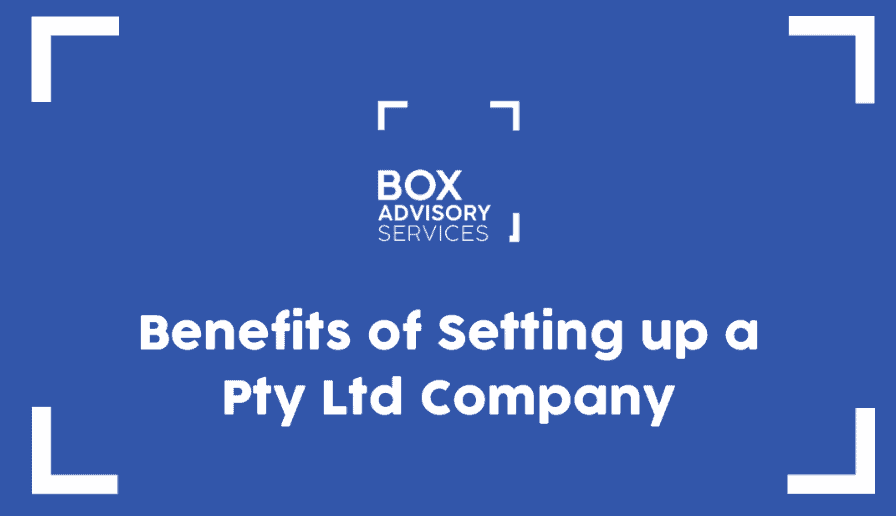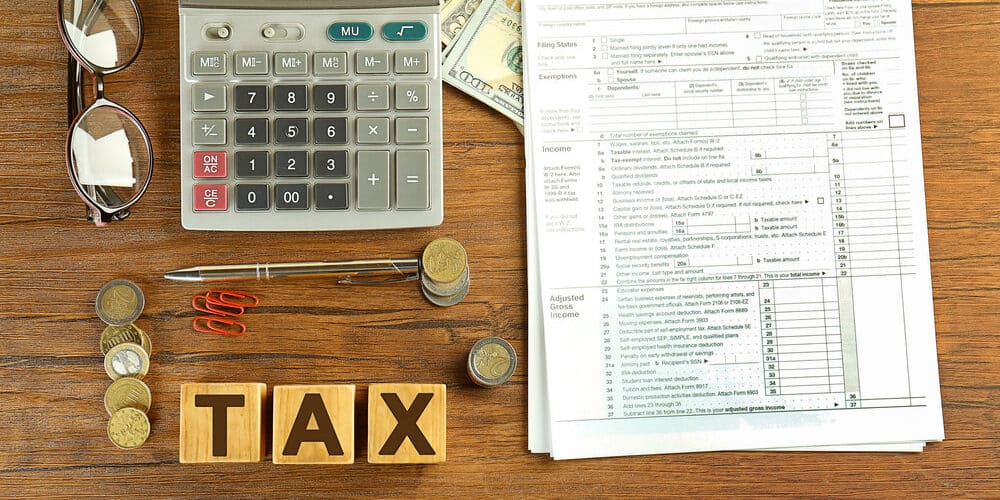
BY
|
Company vs Sole Trader: The Essential Comparison Guide
Choosing a business a sole trader vs company business structure can be confusing as each individual’s business situation is different.
In our experience, many business owners consider between a sole trader vs company business structure when they’re looking to reduce tax liability, grow their business and to limit their personal assets from risk.
In a nutshell, sole trader structures are cheap and easy to set up but are riskier as the owner will be personally liable for the business. You operate with a shared tax file number (TFN) and Australian business number (ABN) as you and the business as are a single entity.
Setting up a company is slightly more expensive but offer better protection, less risk and more flexibility in terms of tax purposes as it operates as a separate legal entity. If you intend on growth, a pty ltd company structure may be ideal for you.
It’s important to note that each business’ situation is different and requires an assessment made either by a qualified accountant or lawyer when considering all factors between a sole trader and a pty ltd company structure.
This is a detailed guide explaining the differences between operating the business as a sole trader vs company. You can check out this side by side comparison as well as a video we made that explains the differences between a sole trader and a pty ltd company.
Key Differences Between a Sole Trader Business Structure & Company Structure
Here are the key differences between sole traders and companies
| SOLE TRADER | COMPANY | |
| Taxation | Sole traders are taxed as an individual. Report your business income in your individual tax return.The 2018-19 tax-free threshold is $18,200.The amount of tax you pay will vary depending on factors such as your income and deductions you can claim.The highest marginal tax rate is at 47% (including Medicare levy & temporary budget repair levy) | Companies are taxed as a separate entity. Report company income in the company tax return.There is no tax-free threshold for companies.The company tax rate for 2019 – 20 is 27.5%.As a director, you need to report any income you earn from the company or other sources in an income tax return. You may also need to lodge a fringe benefits tax (FBT) return if you receive fringe benefits. |
| Income | The money you earn is treated as your individual income. You can claim deductions for costs incurred in running your business. You can withdraw money from a business bank account (separate business bank accounts are recommended, but not compulsory). | Money earned by the company belongs to the company. A separate business bank account is mandatory for a company. As a director, the company may pay you wages or directors’ fees. You may also receive money via shares, dividends or loans. |
| Liability of debt | You are. Sole traders are personally liable for financial or tax debts. There is no division between business assets or personal assets, (including your share of joint assets, e.g. house or car). Assets in your name can be used to pay business debts. | The company is generally liable for all business debts. As a director, you are personally liable for the tax debts of the company |
| Employment | Yes, you can employ staff as a sole trader business structure. You will require workers’ compensation insurance when you employ staff | Yes, you can hire staff under the company business structure. The company will require workers’ compensation insurance. |
| Other | Once the sole trader dies, the business will end. | The business can still run after the death of the director with the benefit of perpetual succession. |
You also have to consider the setup costs and ongoing costs involved in each of these business structures:
| Category | Sole Trader | Company (Pty Ltd) |
| Setup Costs | ||
| ABN Registration | Free via the Australian Business Register. For a step-by-step process, see our guide to starting a business in Australia. | Free via the Australian Business Register. |
| Business Name Registration | $42 (1 year) or $98 (3 years), if not using your own name. | Same cost if trading under a business name separate from the registered company name. |
| Company Registration | Not applicable. | $576 one-off ASIC registration fee (2025). |
| Separate Business Bank Account | Recommended. Bank fees may apply. | Mandatory. Bank fees apply. |
| TFN | Uses your personal TFN. | Requires a separate TFN. |
| Ongoing Costs | ||
| ASIC Annual Review Fee | Not required. | $310 per year (as of 1 July 2025). |
| Business Name Renewal | $42 (1 year) or $98 (3 years). | Same. |
| Bookkeeping / Accounting | Typically lower due to simplicity — may range from $500–$2,000+ annually depending on complexity. | More complex — bookkeeping and accountant fees can range from $2,000–$5,000+ annually. |
| Income Tax Return Preparation | Part of your personal tax return. A tax agent may charge from $300–$1,000. | Requires a separate company tax return, often costing $1,500–$3,000+ per year. |
| BAS Preparation & Lodgement | Required if GST-registered. May use a BAS agent (fees $300–$1,000+ per year depending on frequency). | Same, but may be more frequent or complex. Companies often outsource to BAS agents. |
| Payroll & Super Admin (if hiring) | Optional unless you have employees. | Mandatory if employing staff — must meet Super Guarantee and STP reporting obligations. |
| Key Requirements | ||
| GST Registration | Required if GST turnover is $75,000 or more. | Same threshold applies. |
| Recordkeeping | Must retain records for 5 years. | Must maintain financial and corporate records, including meeting minutes and share registers. |
| Online Services Access | Can use ATO Online Services for Individuals or Business. | Must use Online Services for Business. |
| BAS Agent Use | Optional, but useful to avoid penalties. | Highly recommended due to complexity. |
Although this summarises both structures, you should speak to your small business accountant to work out what the best structure is for your contracting business.
Is Being a Sole Trader Worth It? Pros and Cons Explained
Setting up as a sole trader is one of the most popular ways to start a business in Australia, especially if you’re a solo operator or testing out a business idea. But while it comes with a low barrier to entry, it’s not without its limitations.
Here’s a breakdown of the main pros and cons to help you weigh up whether this structure is right for you.
Advantages of Operating as a Sole Trader
- Low setup and running costs: Since a sole trader is the simplest business structure, it’s cheaper and quicker to get started compared to a company. There are no incorporation fees, and in many cases, you can use your own name without registering a business name.
- Simple tax and admin: As a sole trader, you only need to lodge one individual income tax return. You don’t need a separate business tax return. Accounting fees are generally lower, and there’s less paperwork overall.
- Potential tax savings on low income: If your business is still in its early stages or generating a modest profit, you may pay less tax than a company. This is because individual income is taxed on a progressive scale, unlike the flat 25% company rate.
- Fewer compliance obligations: If you don’t have employees, you don’t need to worry about worker’s compensation insurance. You also don’t need to make superannuation contributions on your own drawings.
Disadvantages of Operating as a Sole Trader
- Unlimited personal liability: You’re personally responsible for all the debts and legal obligations of your business. That means your home, savings, or other personal assets could be at risk if something goes wrong.
- Limited tax planning flexibility: As your income grows, tax planning becomes more challenging. You won’t have access to the same strategies available to company structures, such as income splitting or retaining profits. Additionally, as your income increases, so does your personal income tax rates
- Business ends with you: A sole trader business doesn’t have a separate legal identity. If you retire, pass away, or become incapacitated, the business ends, making succession planning harder.
- Fewer growth pathways: Raising capital or bringing on partners can be more complex without restructuring. This can limit your ability to scale or evolve the business over time.
Key Benefits and Drawbacks of Setting Up a Pty Ltd Company
Running your business through a company structure offers more protection and flexibility, especially as your operations grow or become more complex. But it also comes with stricter compliance requirements and higher costs.
Here’s a breakdown of the main upsides and trade-offs of registering a company in Australia.
Advantages of a Company
- Limited liability protection: Unlike sole traders, company directors are generally not personally liable for business debts. Your personal and business assets are separated, which adds a valuable layer of protection if the business runs into trouble.
- Greater flexibility with tax planning: Companies can take advantage of a wider range of tax strategies. For example, you can retain profits in the business to take advantage of the flat 25% corporate tax rate or structure income in more strategic ways.
- Easier to raise capital and scale: A company can issue shares and bring in investors, making it easier to raise funds and grow. This structure is generally preferred by lenders and venture partners.
- Income splitting opportunities: With the right structure and advice, company owners may be able to distribute income to shareholders or family members in a way that reduces overall tax liability. It’s essential to work with an accountant to stay compliant and effective.
Disadvantages of a Company Structure
- Higher setup and ongoing costs: Establishing a company involves ASIC registration fees and more complex accounting. There are also annual review fees and higher bookkeeping and compliance costs.
- More admin and separate tax obligations: You’re required to lodge a separate annual company tax return and maintain detailed records. Directors have legal responsibilities, and ASIC requires regular reporting and updates to company details.
- Complexity when closing down: Winding up a company is not as simple as walking away. Deregistration or liquidation can be time-consuming, costly, and must follow specific legal processes.
Which Is Best? Company vs Sole Trader?
Deciding between a sole trader vs company is dependent on many factors. Given that each individual’s situation is different and your goals can vary, it pays to consider what is important to you and the nature of your business. This should help you formulate a decision between deciding on either a sole trader or a pty ltd company.
Engaging in an accountant to decide between a sole trader vs company can help you figure out what your exact needs are and which structure for your business may be best to help you achieve these goals.
Box Advisory Services has over 30 years’ combined experience in assisting small business owners and contractors in establishing or re-structure their business structure. To find out how we can help you, book a free consultation with us to assess your situation.
Have You Considered Other Business Structures?
While sole traders and companies are the most common setups for small to medium businesses in Australia, there are a few other structures worth knowing, especially if you’re planning to go into business with others or want more asset protection and tax flexibility.
The most common business structures include:
Partnership
A partnership is where two or more people run a business together and share the income and responsibilities. It’s relatively easy and inexpensive to set up, but all partners are jointly liable for the debts of the business. This means one partner’s actions can affect everyone involved. You’ll still need to register an ABN, and while the partnership itself lodges a tax return, each partner pays tax on their share of income individually.
Trust
A trust is a legal structure where a trustee (either an individual or a company) holds and manages assets on behalf of beneficiaries. Trusts are commonly used for investment or family businesses due to the flexibility in distributing income and the potential asset protection benefits. However, they’re more complex to set up and run, requiring a formal trust deed and annual compliance with trust law and tax reporting.
Joint Venture
This structure involves two or more parties pooling resources for a specific business project or goal. often for a limited period. Each party retains ownership of their own assets and income, and usually has separate tax obligations. Joint ventures are common in property development, mining, and large-scale projects where parties want to collaborate without forming a long-term partnership or company.
Key Takeaways
- Sole traders are easy and affordable to set up, with minimal admin. But you’re personally liable for debts, and tax planning is limited.
- Companies (Pty Ltd) offer asset protection, tax flexibility, and growth potential, but come with higher setup costs and ongoing compliance.
- The best structure depends on your goals, income, and risk tolerance. A sole trader may suit simple setups, while companies suit scaling businesses.
- Other options like partnerships, trusts, and joint ventures can suit more complex or collaborative arrangements.
- Speak to an accountant to ensure your structure supports both your current needs and long-term plans.
Sign up to our monthly newsletter where we share exclusive small business and contractor advice!
Disclaimer:
Please note that every effort has been made to ensure that the information provided in this guide is accurate. You should note, however, that the information is intended as a guide only, providing an overview of general information available to contractors and small businesses. This guide is not intended to be an exhaustive source of information and should not be seen to constitute legal or tax advice. You should, where necessary, seek your own advice for any legal or tax issues raised in your business affairs.



